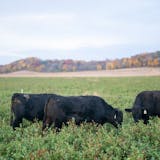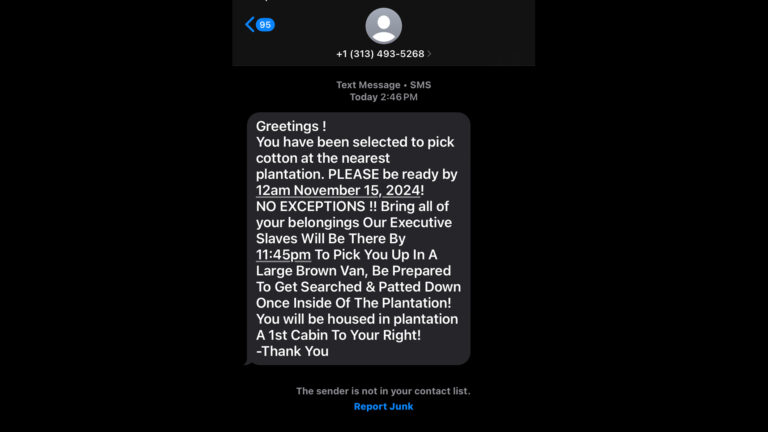Exploring Sexual Identity’s Impact on Modern Farming Practices
The Impact of Sexual Identity on Modern Farming
When we think about farming, we often picture sprawling fields of crops, tractors plowing those fields, and farmers working tirelessly from dawn till dusk. But there’s a topic that flies under the radar—sexual identity. How does one’s sexual identity influence their farming practices, community interactions, and even agricultural policies? Strap in as we dive deep into this multifaceted topic that’s surprisingly relevant to the world of modern agriculture.
Understanding Sexual Identity
Let’s start with the basics: what do we mean by sexual identity? In a nutshell, sexual identity refers to how individuals perceive themselves and how they relate to others based on their sexual orientation. Inclusion of various sexual identities—heterosexual, LGBTQ+, and beyond—shapes communities and industries in numerous ways. With more farmers identifying openly as LGBTQ+, the stereotypes around traditional farming identities are rapidly evolving.
Embracing Diversity in Agriculture
Diversity brings innovation, a breath of fresh air in the world of agriculture. When farmers from different backgrounds come together, you get a blend of perspectives, ideas, and practices. For instance, farmers identifying as LGBTQ+ might approach sustainability and conservation differently than traditional counterparts due to their varied experiences and values.
Case Study: LGBTQ+ Farmers
There are fantastic examples of LGBTQ+ farmers who have redefined not just what it means to farm but how farming can be done. They often cultivate not only crops but also community. These farmers are likely to engage with advocacy for social justice issues, land rights, and environmental sustainability, which pushes the envelope on how farming practices are shaped.
- Innovative Growing Techniques: LGBTQ+ farmers tend to favor more sustainable, innovative techniques that embrace diversity in the crops planted.
- Community Involvement: They often prioritize community-supported agriculture (CSA), forging deeper connections with consumers.
Overcoming Challenges
While embracing sexual identity can lead to innovative practices, it doesn’t come without challenges. Traditional farming communities can often hold onto outdated norms, which can create a hostile environment for queer individuals.
The Social Barrier
Imagine walking into a local farmers’ market, where the scent of fresh produce fills the air, yet when you approach a vendor, there’s that awkward silence, the lingering gaze, and a palpable disinterest simply because of who you are. This exclusion can discourage many from participating or thriving in a traditionally conservative space.
Mental Health Impacts
The weight of societal exclusion can be heavy, leading to levels of anxiety and depression. In farming, where mental health concerns already run high due to pressures like profitability and environmental stressors, adding the layers of sexual identity struggles can make matters worse. Studies have shown that LGBTQ+ farmers may experience higher rates of mental health issues primarily due to isolation and stigma.
Navigating the System
So, what do farmers do? They often find strength in community. Various LGBTQ+ agricultural organizations have cropped up, offering everything from emotional support to advocacy. These networks help to navigate the multifaceted agricultural landscape, enabling farmers to gain visibility, share knowledge, and uplift each other.
Building Inclusive Communities
It’s one thing to acknowledge that diversity exists; it’s another to actively cultivate an environment that celebrates it. Building an inclusive farming community often requires deliberate actions and policy changes.
Training and Sensitivity Workshops
Training programs, sensitivity workshops, and community dialogues can promote understanding and decrease stigma. Imagine local farming organizations hosting workshops that encourage participants to step into each other’s shoes, fostering empathy and comprehension of diverse identities.
Policy Advocacy
At a larger scale, advocating for inclusive policies on both local and national levels becomes paramount. This could include pushing for anti-discrimination laws or promoting equitable funding for LGBTQ+ farmer-led initiatives. These changes can have ripple effects, enriching agricultural practices and environments.
Farming: A Metaphor for Sexual Identity
Farming can serve as a perfect metaphor for understanding sexual identity. Think about it: just as different crops require unique conditions to thrive, people, too, flourish when they are nurtured in inclusive environments. There’s beauty in diversity, whether in a field of heirloom tomatoes or among individuals in a community. Each contributes its unique flavor and benefits, enhancing the richness of the whole.
The Role of Education
Education can’t be overlooked in this journey toward a more inclusive farming landscape. Schools and colleges can introduce curriculum changes that normalize discussions about sexual identity. Wouldn’t it be great if future generations of farmers learned not just about crop rotation but also about respect and understanding for all identities?
The Influence of Social Media
In today’s digital age, social media plays a pivotal role in shaping perceptions and community. Farmers use platforms like Instagram, TikTok, and Twitter to share their stories, connect with others, and build community.
Storytelling and Representation
By sharing their journeys online, LGBTQ+ farmers are able to raise awareness and cultivate support. The authenticity of their stories resonates with many, dispelling myths and challenging stereotypes. Representation matters, and visibility can encourage budding farmers to embrace their identities openly.
Building a Support Network
These platforms also facilitate networking, allowing individuals to find allies and mentors who understand their struggles. Transforming isolation into community hugs—that’s the magic of modern communication.
Looking Forward: A Transforming Landscape
As we grapple with the changing dynamics of farming due to climate change, economic pressures, and technological advances, one thing remains clear: the intersection of sexual identity and farming will only become more prominent. Farmers are not just producers of food; they are advocates, educators, and community builders.
A Call for Authenticity
In this evolving landscape, it’s crucial for all farmers, regardless of their sexual orientation, to have the space to be their authentic selves. Only then can we cultivate a truly inclusive farming community, one where everyone feels valued and welcomed.
Conclusion
When we start to explore the nuances of sexual identity in farming, it becomes clear that this topic is more than just a side note; it’s a vital aspect that can reshape agricultural practices, community dynamics, and industry standards. Embracing diverse identities within this space not only fosters innovation but also strengthens the agricultural community, leading to better practices and outcomes for all. By overcoming barriers and encouraging inclusivity, modern farming can truly bloom into a landscape where every farmer, regardless of their sexual identity, can thrive.
FAQ
1. How does sexual identity affect farming practices?
Sexual identity influences community engagement, innovative approaches to sustainability, and farmers’ emotional well-being, creating both challenges and opportunities.
2. Are there organizations that support LGBTQ+ farmers?
Yes, there are several organizations focused on supporting LGBTQ+ farmers, providing resources, networking, and advocacy for inclusive farming practices.
3. What role does social media play in the lives of LGBTQ+ farmers?
Social media allows LGBTQ+ farmers to share their experiences, network, and build community while highlighting representation and diverse agricultural practices.
4. How can traditional farming communities become more inclusive?
By incorporating training workshops, creating inclusive policies, and encouraging dialogue among community members, traditional farming communities can cultivate a more accepting environment.
5. Why is representation important in the farming industry?
Representation ensures visibility for diverse groups, helping to challenge stereotypes, promote understanding, and provide role models for future generations of farmers.







